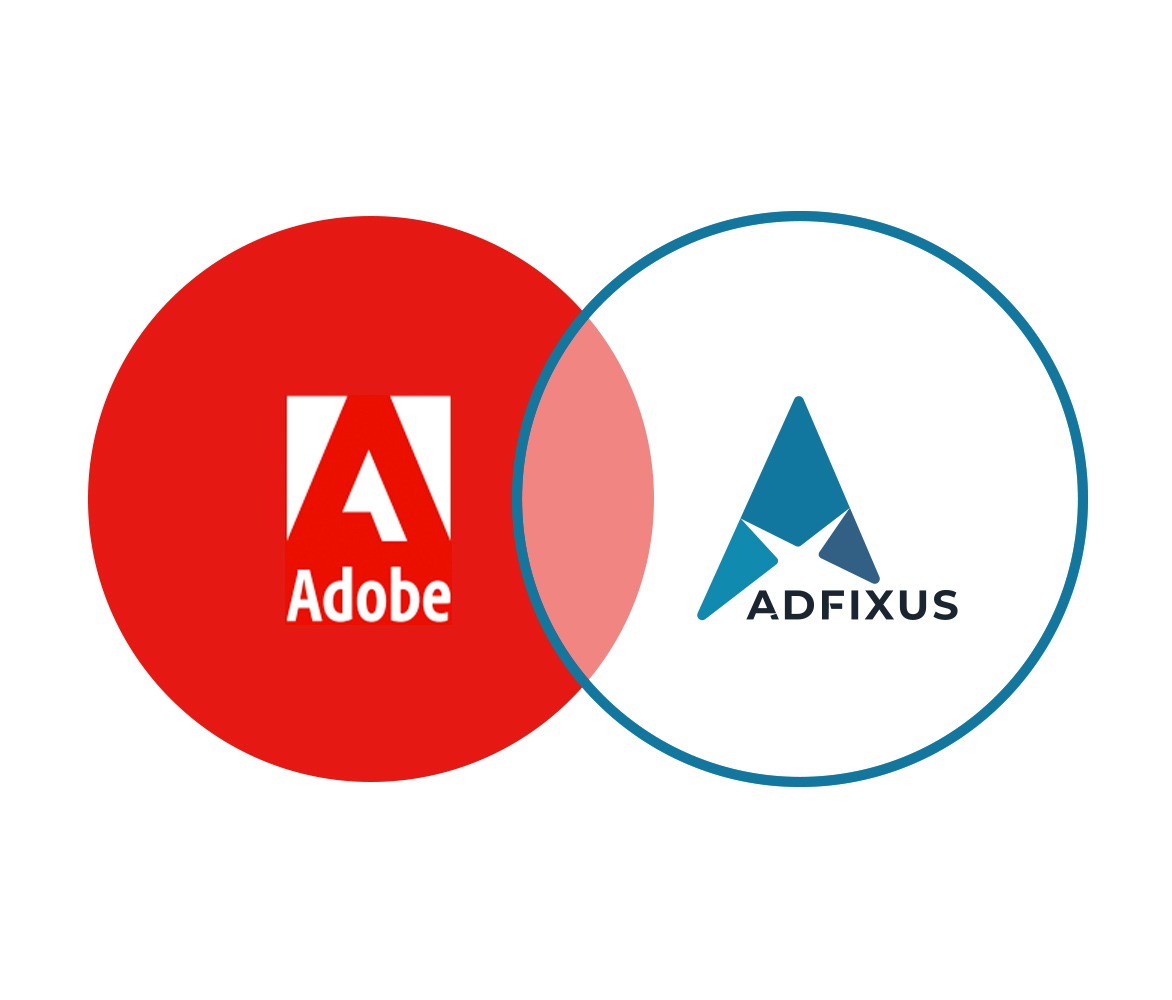Aimee Edwards | 5th November 2025 | B&T
AdFixus, founded by Marko Markovic and supported by Head of Sales Roland Irwin, is a tech company focusing on privacy-compliant advertising solutions that operate without storing or commercialising consumer data. The platform was developed with an awareness of the shifting privacy regulations around first-party data, particularly as third-party cookies are phased out. With patents secured in multiple markets, AdFixus has built a first-party identity solution designed to align with current industry privacy standards.
B&T sat down with Markovic and Irwin to unpack how AdFixus’ approach aligns with recent recommendations from industry leaders like Google, which advocate for first-party data handling and authentication-based methods. By operating within the client’s infrastructure, AdFixus’s technology creates a user identifier without storing personally identifiable information (PII), with all data encrypted at multiple stages.
B&T: What inspired the development of AdFixus’s privacy-compliant advertising ID technology, and how does it address challenges in today’s data privacy landscape?
Markovic: AdFixus was inspired by a vision for the future of privacy and compliance, developed with careful consideration of how first-party data was going to be perceived in the years to come.
Fast forward to now, and AdFixus has patents in most major markets, following feedback around its deployment and unique double-encrypted identity creation. It is synonymous with the direction that the industry is heading, and we are seeing other industry leaders like Google recommending similar deployment methods around authentication and first party deployments.
Irwin: The industry is heading in our direction, which is the really strong and encouraging side. What we have envisaged, designed, built and commercialised over the last couple of years is now already running.
In today’s landscape, we believe that what we know works and that we have covered anything that we are seeing coming down the pipes in the Australian market privacy changes in the near future, too.
B&T: AdFixus is unique in that it provides targeted advertising solutions without storing any consumer data. Could you walk us through how the platform achieves this level of privacy?
Markovic: The simple notion is that AdFixus does not collect, see, store, or commercialise any of the data. They deliver a first-party identity solution created from within the client’s infrastructure and is 100 per cent deterministic, contains zero personally identifiable information (PII)and completely decentralised into the client’s browser, double encrypted on the way though.
AdFixus achieves this level of privacy by “doing things correctly”, to industry recommendations.
B&T: The platform’s first-party cookie technology anonymises data to protect consumer privacy. How does this technology work, and what advantages does it offer over traditional third-party cookies?
Markovic: Third-party cookies were built, delivered, and inserted into people’s internet experience while collecting a significant amount of data which was stored and re-sold without consumer consent or knowledge.
AdFixus has analysed that process and understands that this methodology was neither the right thing to do- nor consumer-centric, as no one truly understood what was going on.
Irwin: When people aren’t paying for a product, they are the product. Their data was being commercialised and resold without them knowing.
As a first-party cookie, AdFixus provides their clients with a durable identifier for their total audience – unknown and known – this is deployed from their infrastructure and delivers the ID and data back only to the client and no one else. The AdFixus difference is that they do not store consumer data anywhere and supply it to the client. With this method, clients and consumers are significantly more aware of where their data is, the consented acceptance, and what it is being used for, helping them take control over their online identity.
B&T: With AdFixus boasting a near-perfect match rate for anonymous users across different domains, what makes this match rate possible, and how does it improve campaign effectiveness?
Markovic:AdFixus’ near-perfect match rate happens because they consider both parties: the consumer and the brand. There is no probabilistic matching or stitching between brands, which means a campaign’s effectiveness can be directly attributed to the brand. This allows for greater audience addressability and attribution, thus amplifying the effectiveness of a brand’s advertising campaign.
There is a large focus on the personalisation and audience data commercialisation of third-party cookies, what is not focused on is the loss of measurement and visibility of your audience. We reclaim that visibility and that feeds directly into all analytics platforms and effects attribution and analysis. Sometimes to alarming effects and we are seeing big growth in this area.
B&T: How does AdFixus support major media players, like Nine, Seven, and NewsCorp, in leveraging their first-party data to maximise advertising efficiency and privacy?
Markovic: Major media players including Nine, Seven, and NewsCorp have a large volume of online properties. This has meant that when third-party cookies have been deprecated, they lost visibility via their internal identity systems to link everything together. As a result, the audience visibility and addressability on these media players have been lost on certain browser types, which in markets like Australia that accounts for approx 50 per cent of publisher’s web audience.
AdFixus’ capacity to reclaim visibility on double the volume of data going into back office platforms like ad servers supports major media players in optimising their campaigns, pinpointing their effectiveness, and analysing their performance. For joint customers AdFixus also allows brands to access greater audience suppression and frequency gaps across groups, which are elements that have been eradicated as third-party cookies in their own internal identity systems.
Irwin: Publishers that use AdFixus are granted access to better optimisation and can reclaim their ability to do programs such as remarketing for anonymous users.
Publishers lost the ability to track conversions on their partner’s sites early in 2024. With AdFixus, the ability to send your conversions directly with the publisher. The publisher picks up these data points matched to the users on their side andthe audience is ‘suppressed’ in real time to help find people who behave similarly and can fill a campaign’s segment size.
B&T: AdFixus is noted for helping advertisers and publishers achieve cost efficiencies and higher campaign performance. Could you share some specific metrics or examples of this impact?
Markovic: The impact of AdFixus’ identity technology on CarSales’ CAPI (conversion API is impossible to ignore. CarSales at their recent UpFronts told the market that they are seeing 3x the attributed conversions compared to standard segment targeting.
B&T: In the case of CarSales, AdFixus reportedly increased conversion and engagement by threefold. Could you expand on the factors behind this improvement?
Markovic: There were a couple of factors crucial to CarSales’ campaign improvement: the ability to correctly attribute the conversion to the campaign, and the capacity to suppress the CarSales’ audiences, as well as the wider technology investments that they have made to run all of this in real time.
These factors allowed CarSales to identify and target people who behave in a similar manner to those who had been converted, which enhanced their campaign engagement.
B&T: How does AdFixus enable businesses to reduce dependency on third-party operators like Google and Meta, and what impact does this have on advertisers and consumers?
Markovic: Each publisher and well-regarded social network have their unique place. More than 50 per cent of digital media is run though Google and Meta alone.
To achieve these numbers, both platforms have been able to secure high engagement rate and have closed their walls allowing the knowledge and data gained on their audience to be retained in their systems.
The vast data they have gathered has improved their algorithms, enhanced their targeting and amplified their reporting. They have been able to attribute the problems they’ve encountered through their campaigns to improve future targeting strategies.
AdFixus is looking to bring similar capabilities to the premium publishers in Australia’s marketplace. AdFixus knows that these properties have the same reach as Google and Meta and have replicable levels of engagement. AdFixus can support Australia’s premium publishers by connecting data that supports their reporting and improves their audience attribution and conversion and helps them to run this data back against their campaigns.
B&T: With privacy regulations becoming more stringent, how does AdFixus ensure ongoing compliance? Are there specific standards or frameworks the platform adheres to?
Markovic: AdFixus works with some of Australia’s most highly regulated and stringent industry bodies, and with an ISO certification, zero PII anywhere in their system and the fact that they do not see, store, or commercialise any data.
Irwin: It all begins with a discussion, where we uncover all security, and compliance questions and concerns a client has to ensure ongoing compliance – and respond within the client’s security / compliance framework and processes.
AdFixus does what is right by the consumers and are leading the way for the wider industry.
B&T: Could you describe the role of the Privacy and Data Specialist in maintaining AdFixus’s commitment to privacy, and why this role is critical for the company?
Markovic: There is a general consensus among privacy and market leaders that current regulations and standards are not the end of the line. They believe there will be secondary (or even third) components of the privacy regulations in Australia, specifically in the space of consent.
As internal privacy regulators and leaders, data specialists must look at, and understand, the current regulations and the direction of the future. It is their goal to guide people towards more transparency around consent with an acknowledgement of cookie policies. They also must be clear where data is being drawn from, and where it is being used. This becomes significantly more complex for enterprises who have multiple brands.
When an acknowledgement of risk is combined with the desire of the government and consumers, it is clear that companies need to prioritise building trust with their audiences and ensure an equal trade of information. A Privacy and Data Specialist is fundamental to this direction.
B&T: What upcoming developments or features are on the horizon for AdFixus? How is the company preparing to tackle future challenges in digital advertising and privacy?
Irwin: Measurement and attribution will be a big factor going forward, as this was largely run through third-party cookies.
AdFixus believes there may be a place where they can add their own attribution measures over the top of their first-party identifier technology, where a simple click and impression tracker would allow a campaign’s data to be run across multiple publishers with the same creative, at the same time.
An additional attribution measure would unify a brand’s data, making it solely accessible to the advertiser, and provide greater visualisation over the performance of a campaign.
Essentially, the data would go back to the advertiser, and the advertiser would be able to assess the performance of the campaigns and the validity of the audiences to the publishers to determine what is working within a campaign to adjust budget accordingly.
A global consent management system is another development that AdFixus anticipates may come to fruition. It would allow consumers to select how they want their data to be shipped to partner advertisers via the browser they are using.
B&T: For businesses aiming to maximise their marketing impact while safeguarding user privacy, what strategies or advice would AdFixus recommend?
Markovic: There are two strategies that AdFixus recommends to businesses who are looking to maximise their marketing impact and safeguard user privacy.
The first, is to start down the path of untangling privacy policies. AdFixus recommends businesses make their policies more digestible to the everyday user and highlight the ways they are upholding consent and transparency around data use.
The second is to “start today” when it comes to consent.
Irwin: Adding an extra layer of acknowledgement around your platform’s cookie policy sooner rather than later creates better opportunities for matching down the track and unlocks a more consistent pool of audience members for overlay with the publisher.”
If a consented audience framework was mandated, brands will be south of zero. Embedding greater measures for consent now is low impact but the consequence of not doing it is significant.













